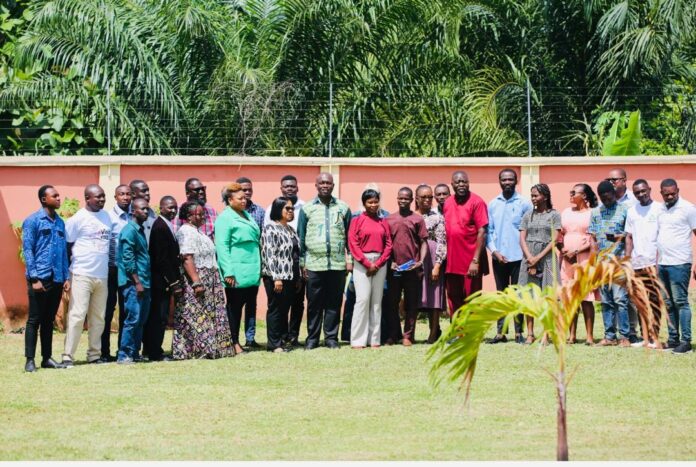Professor Frank E. Baiden, Dean of the Fred N. Binka School of Public Health at the University of Health and Allied Sciences (UHAS), has urged journalists to take a leading role in raising awareness about the growing threat of non-communicable diseases (NCDs).
Addressing journalists from the Oti and Volta Regions during a two-day capacity-building workshop in Hohoe, Professor Baiden emphasised that NCDs—such as hypertension, diabetes, and stroke—now account for over 60–70% of global deaths. The workshop formed part of the Nkabom collaboration, aimed at enhancing health communication and awareness.
He highlighted that with their influence, journalists are uniquely positioned to shape public attitudes and encourage healthier behaviours.
“We must move from just reporting illness to actively driving public awareness and preventive action,” he said.
Professor Baiden also expressed concern over the rising number of young people affected by NCDs, attributing the trend to unhealthy lifestyles, poor nutrition, limited rest, and stressful work environments.
He noted that comprehensive and consistent media coverage is essential to reversing this trend and alleviating pressure on the healthcare system.
As part of the training, participants explored topics such as entrepreneurship, innovation, and climate-smart agriculture—tools that can improve reporting on malnutrition and environmental issues.
Journalists also toured the Fred N. Binka School of Public Health, where they observed a smart farming project designed to address food insecurity and promote healthy eating.
Professor Francis Zotor, Director of AfriCAN and a certified nutritionist, explained that the UHAS-Nkabom MasterCard Project is not only focused on public health but also aims to reduce graduate unemployment. He emphasized that it is unacceptable for graduates to remain jobless after years of education and called for practical, skills-based solutions.
“We are integrating entrepreneurship into academic programmes to give students real-world experience and promote agribusiness as a sustainable source of employment,” he said.
He encouraged journalists and young people to explore the initiative to improve their livelihoods and contribute to national development.
ALSO READ:



